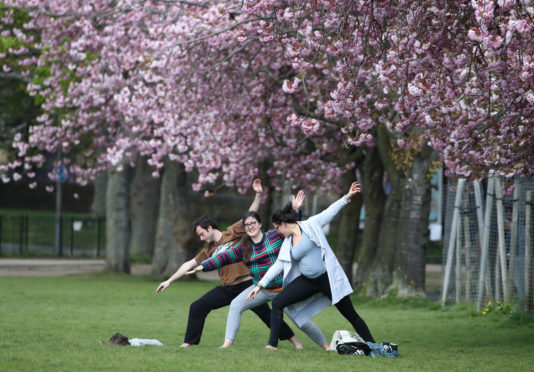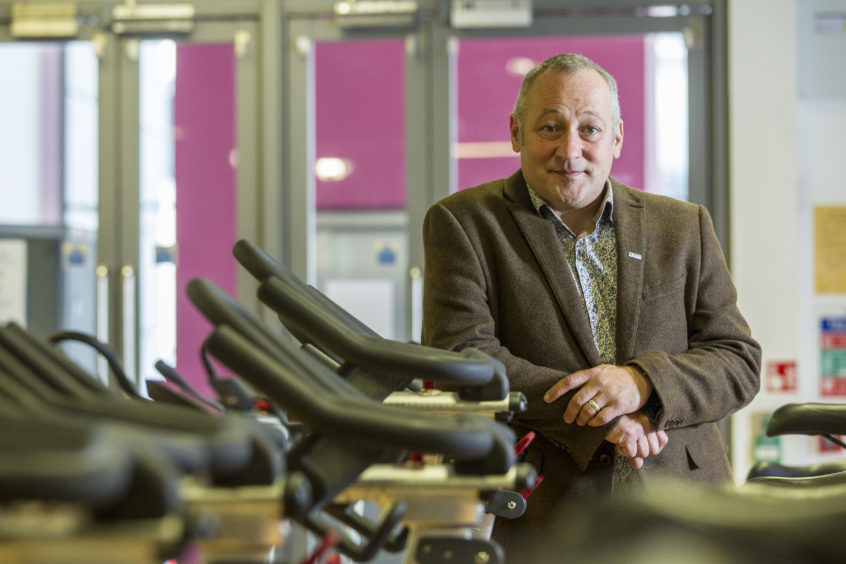
Scottish researchers are undertaking the world’s largest study to find out if exercise can boost Covid-19 immunity.
Leading researchers at Glasgow Caledonian University have launched the groundbreaking study to aid government decision-making during the pandemic.
Results could lead to more open spaces being made available for exercise, and extra physical activity could also help to prevent a second outbreak of Covid-19 this winter.
It is the most comprehensive systematic review ever conducted into the impact of physical activity on immune response and researchers are working “flat-out” to publish the results, which would normally take months to collate.
Researchers at GCU already think exercise is effective in fighting the virus, but they are currently competing in a “race against time” to prove this and by how much by the end of May.
The university’s physical activity researchers, respiratory experts, and sport and exercise psychologists have joined forces with globally-renowned immunologists, epidemiologists and public health experts from Scotland and around the world to conduct the study.
They will be analysing more than 14,000 research papers published world-wide over the last 40 years for key data.
Professor of Health Behaviour Dynamics in the School of Health and Life Sciences at GCU, Sebastien Chastin, who is lead researcher in the study, said the results will help inform policymakers, health professionals and the public.
He said: “This study is crucial because if we can prove that physical activity can help in any way shape or form to lessen the impact of Covid-19 it could have a huge impact on the pandemic and government decision-making. Exercise is a very cheap and easy measure. We think it is effective in fighting Covid-19 but we need to prove it entirely and by how much.
“The outcome of this study could level the discussion around opening parks and green spaces. There is a lot of argument and tension at the moment around people being active. One of the possible solutions would be to open other private places where people could go. It is important that we make sure people are as fit and active as possible, particularly if we face another outbreak in the winter.
“There is a lot of research out there but there has not been such a huge systematic pooling of all the results that can give us a clear and definite answer. As the University for the Common Good it is very significant that GCU is leading this crucial study.
“Our plan is to get this review published in a peer-reviewed medical journal but we will do an evidence briefing that we will make available to policymakers as soon as we have conclusive results.”
Other GCU researchers involved in the study are physical activity experts Dr Philippa Dall and Ukachukwu Abaraogu, sport and exercise psychologists Dr Elaine Duncan and Dr Joanna McParland, and respiratory specialist Dr Nicola Roberts.
Dr Duncan said: “A number of governments, including the UK and Scottish Government, are encouraging the population to remain physically active and there is debate about keeping outdoor spaces open to facilitate physical activity despite measures such as lock-down and social distancing.
“Research suggests that physical activity directly boosts immune response, both acutely and in the long term. Research also suggests that physical activity can decrease stress and chronic inflammation, thereby reducing the risk of infection.
“However, to date, there is no systematic review or meta-analysis summarising this evidence. The team are working to a tight deadline to deliver scientifically informed guidance testing the notion that physical activity might help within the pandemic.”
The researchers are working closely with Ghent University’s Professor of Exercise Physiology Jan Bourgois and exercise immunity expert Jasmien Dumortier, Mark Hamer, Professor of Sport and Exercise Medicine at the Institute of Sport, Exercise and Health at University College London, and NHS Lanarkshire Consultant in Public Health Dr Jennifer Darnborough.
Dr Darnborough added: “In addition to enabling a formal recommendation to be made about physical activity and its role in the current pandemic, the pandemic itself has offered us an opportunity to stocktake how we as a society value and incorporate PA into our daily lives.”

Enjoy the convenience of having The Sunday Post delivered as a digital ePaper straight to your smartphone, tablet or computer.
Subscribe for only £5.49 a month and enjoy all the benefits of the printed paper as a digital replica.
Subscribe © Peter Devlin
© Peter Devlin